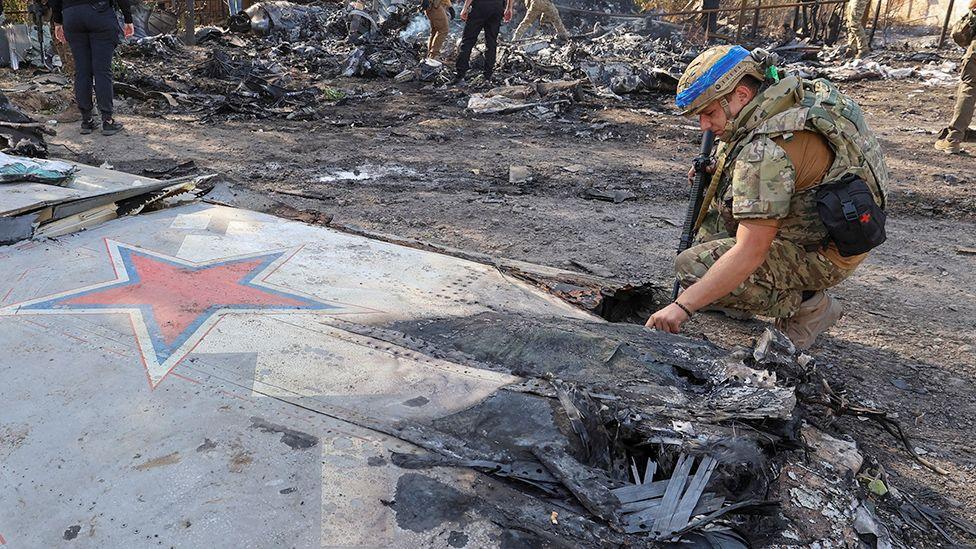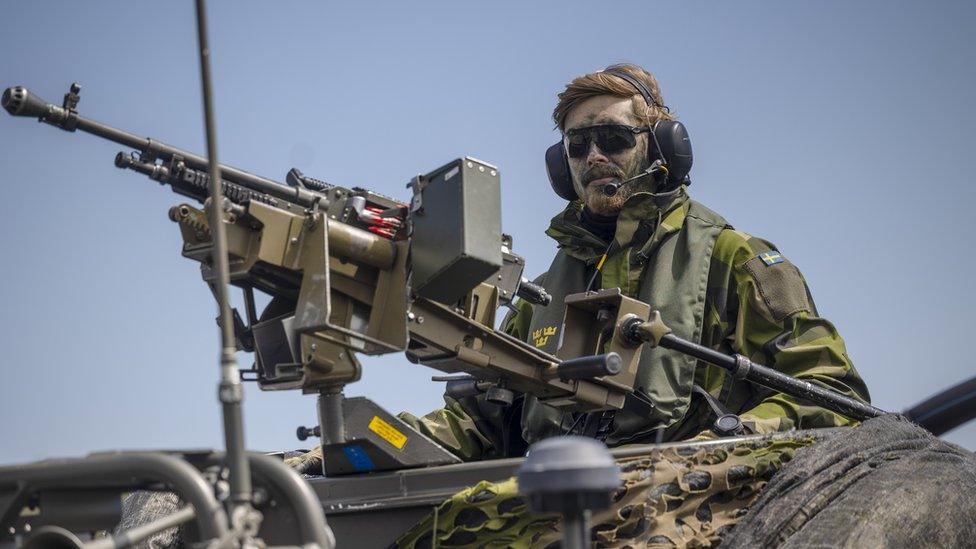US sanctions Chinese firms behind Russian drones, as Zelensky calls for 'pressure'
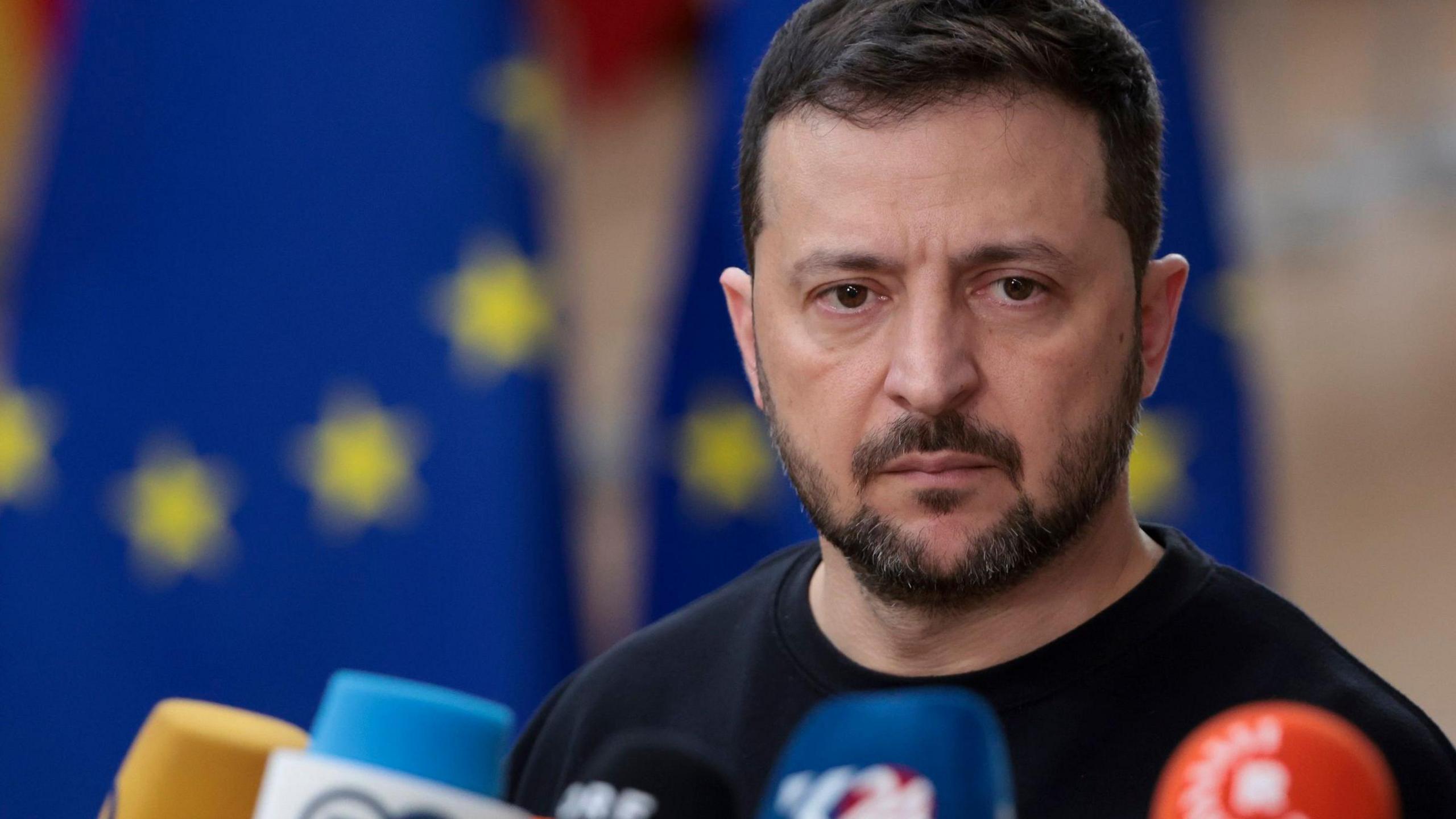
Volodymyr Zelensky said "China is still actively helping Russia drag out this war"
- Published
The United States has sanctioned two Chinese companies it says are involved in the production of aerial drones used by Russia in its war in Ukraine.
In a statement, the US Treasury said it was also targeting a Russian company and its owner, Artem Yamshchikov, who it said serve as an intermediary between the firms and a Russian state-owned weapons company.
The move means their property and interests within US control have been seized.
It came as Volodymyr Zelensky outlined his "victory plan" in a speech to the EU Council - in which he said Ukraine had intelligence that "China is still actively helping Russia drag out this war".
The US Treasury said it had sanctioned Xiamen Limbach Aircraft Engine Co - which makes engines that power Russia's Garpiya long-range drones - and Redlepus Vector Industry Shenzhen Co for its involvement in shipment.
US State Department spokesman Matthew Miller said the so-called suicide drones had "been used to destroy critical infrastructure and has resulted in mass casualties".
Thousands of them have been produced since last year, according to the Reuters news agency.
"Russia increasingly relies on the expertise of foreign professionals and the import of sophisticated technologies to sustain its weapons program," US Treasury official Bradley Smith said.
Speaking to the EU Council on Thursday, the Ukrainian president also accused North Korea and Iran of aiding Russia's war effort.
"[Russian President Vladimir] Putin wants to match your countries’ ammunition production by next year," he told European leaders.
"Please don't ease the pressure of sanctions on Russia - it truly helps."
Are North Korean troops joining Russia’s war in Ukraine?
- Published16 October 2024
Zelensky presents 'victory plan' to Ukrainian parliament
- Published16 October 2024
Mystery of Russia's secret weapon downed in Ukraine
- Published12 October 2024
Elsewhere in his speech, Zelensky outlined the five-point victory plan he revealed to the Ukrainian parliament on Wednesday.
He said that Ukrainian forces could hold the front line within his country while continuing to attack Russian territory - if allies provide the weapons Ukraine has requested.
Zelensky said applying military pressure to Russia while defending Ukraine was needed to achieve an equitable peace - including being permitted to use long-range missiles on Russian soil.
"We propose placing on Ukrainian land a deterrence package that would either force Russia to participate in real peace negotiations or allow for the destruction of their military targets," Zelensky said.
Describing this as a "peace through strength approach", he added: "Putin should respect our strength, not have the free world tremble at his threats."
Ukraine's allies, including the UK and US, have so far desisted from allowing their long-range missiles to be launched on targets inside Russia.
Putin has argued that Ukraine using these Western-supplied weapons would be tantamount to Nato countries fighting directly with Russia - though Western nations have crossed his "red lines" previously without retaliation.
Kyiv says that not being able to hit the bases from which many of the air strikes that have bombarded Ukraine since Russia launched its full-scale invasion in February 2022, limits its capacity for self-defence.
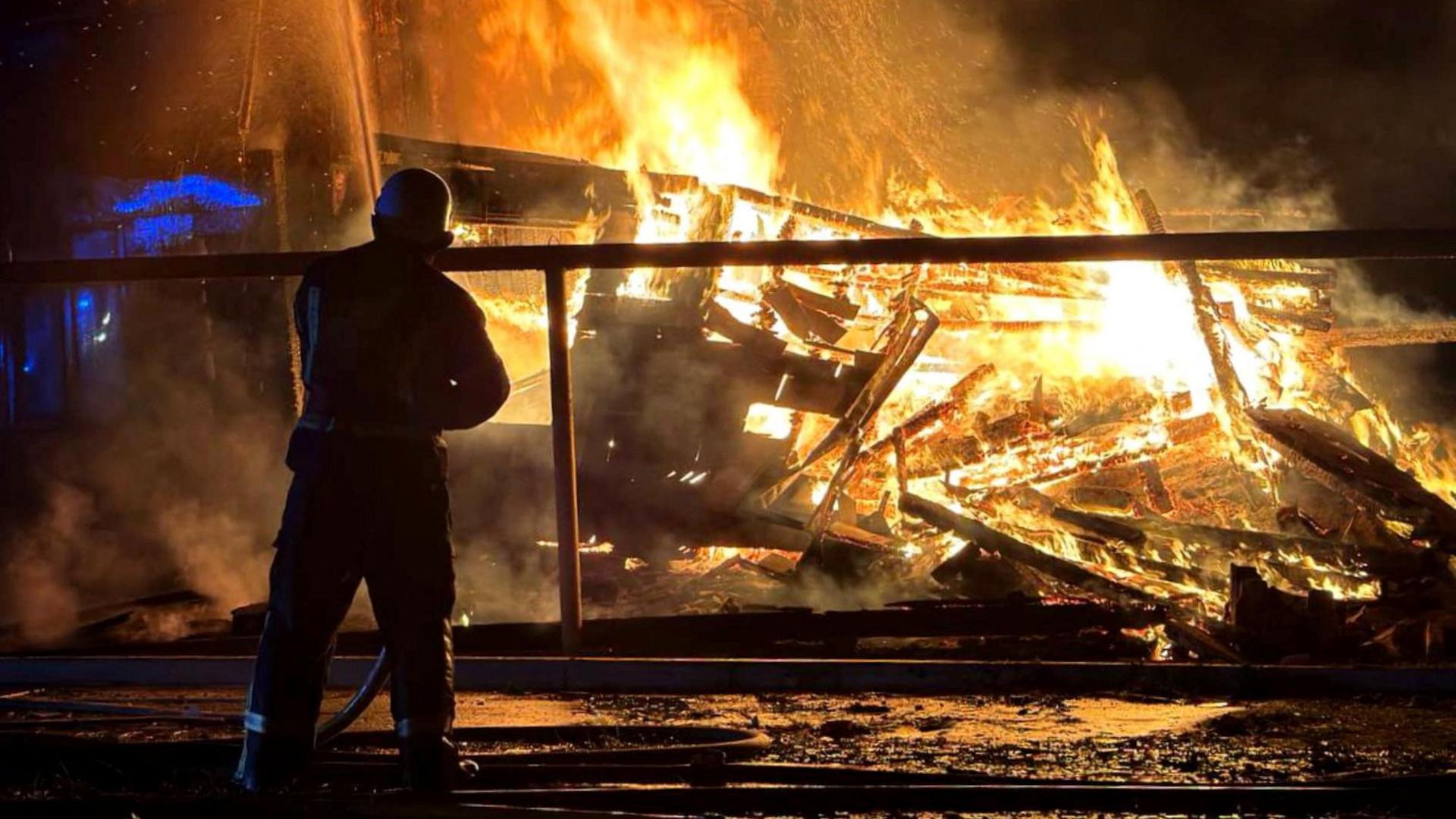
US State Department spokesman Matthew Miller said drones had "resulted in mass casualties" in Ukraine
In his speech, Zelensky pointed to the Kursk offensive by Ukrainian forces into Russia - which took both Russia and Ukraine's allies by surprise - as showing that "Putin does not have enough strength to hold on when we really apply pressure".
He proposes military operations in Russia continue to avoid "buffer zones" being created in Ukraine.
Zelensky also said another point in his plan - an invitation to join Nato - would bolster Ukraine's negotiating position, but suggested this would not mean immediate membership of the military alliance.
"Russia has used the geopolitical uncertainty caused by Ukraine not being in Nato," he told the EU Council, saying that "an immediate invitation to Ukraine to join Nato would be decisive".
He added: "Of course, membership would follow later."
Allies have expressed support for Ukraine - but not yet endorsed Zelensky's plan.
Nato's new Secretary General Mark Rutte said it was a "strong signal", but would only commit to Ukrainian Nato membership "in the future".
Following Zelensky's speech, EU Council President Charles Michel said providing more financial and military support to Ukraine was "urgent".
- Published11 October 2024
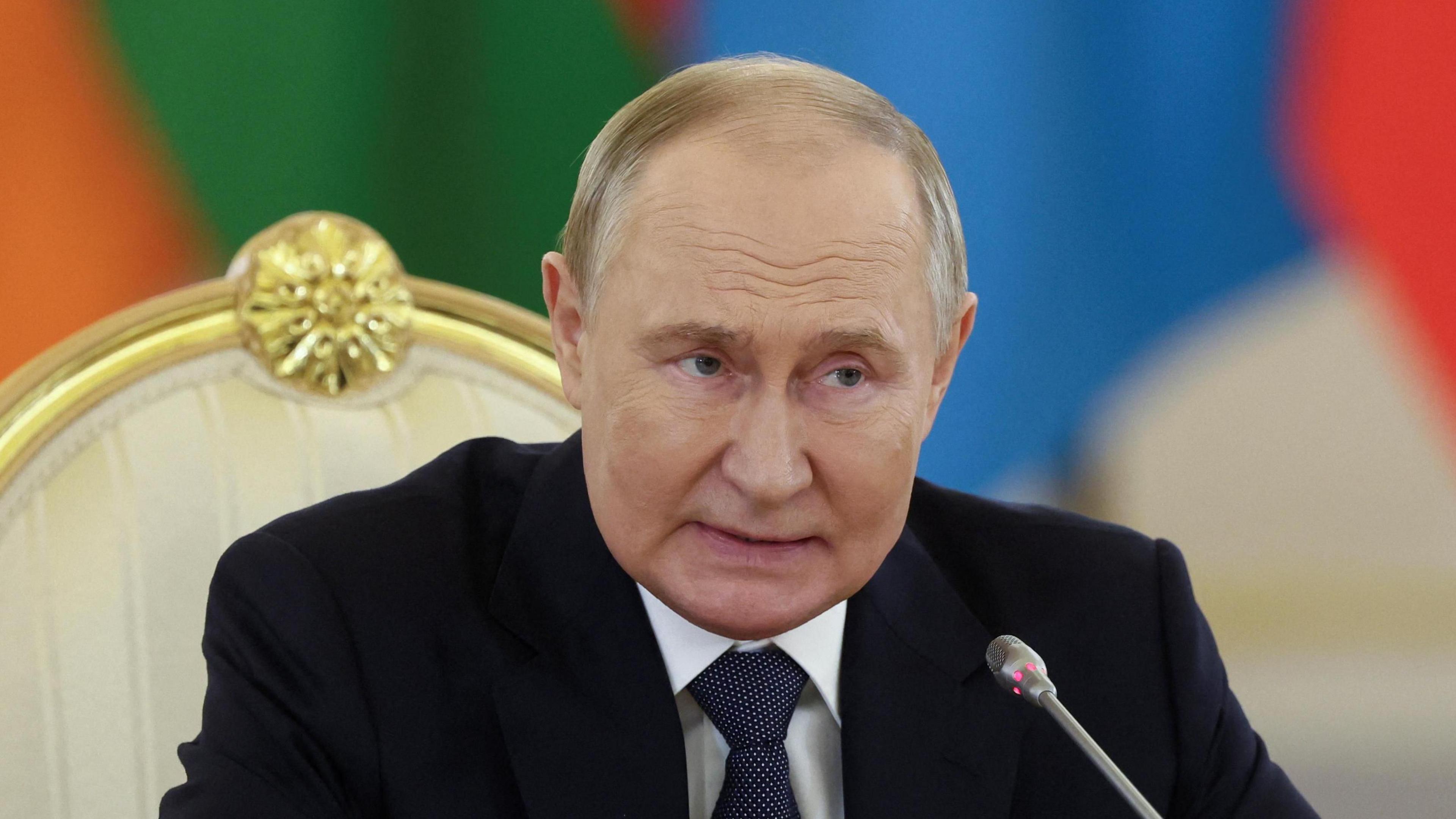
- Published13 June 2024
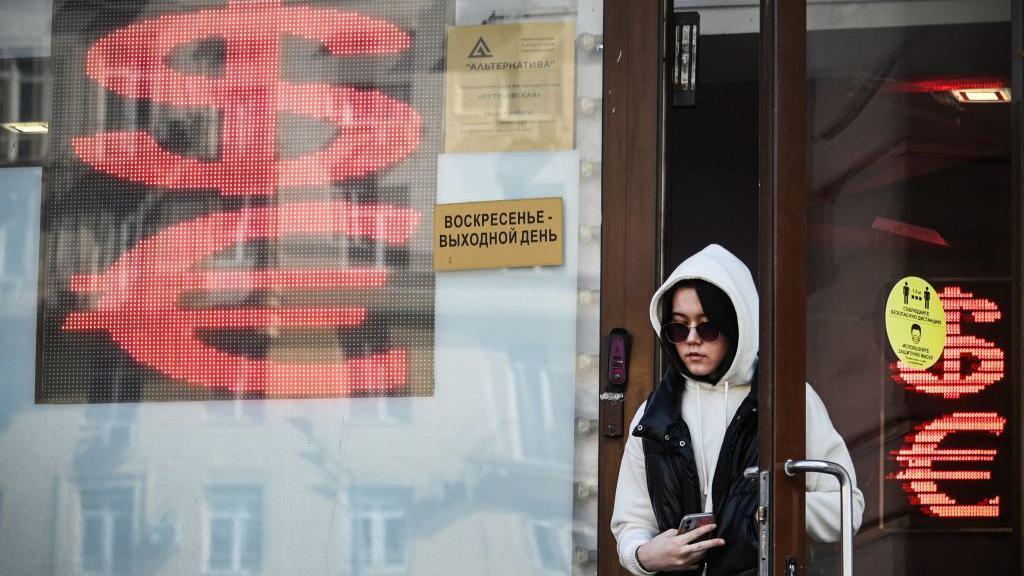
- Published17 February
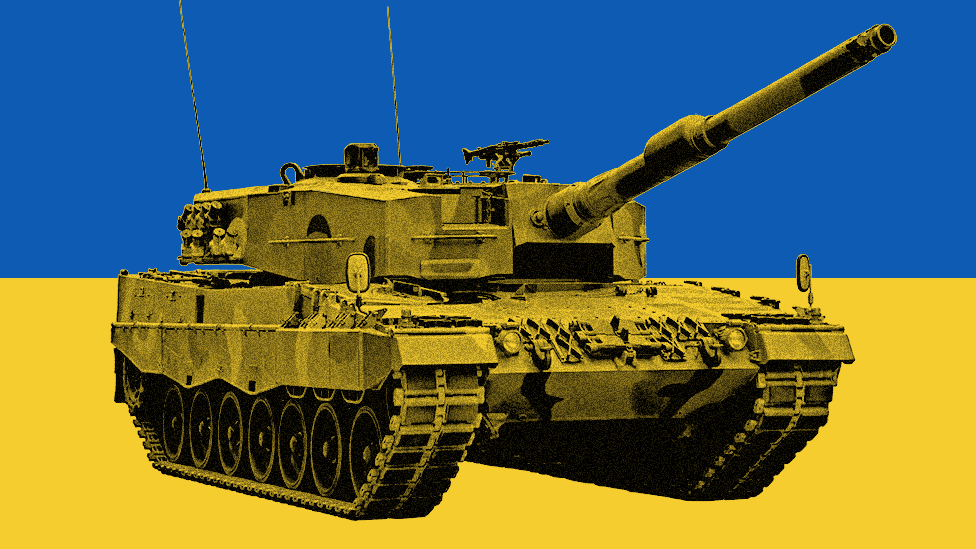
- Published12 October 2024
